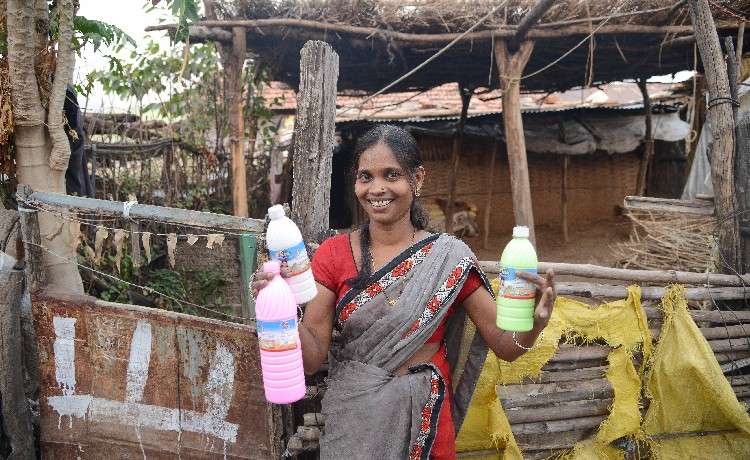Given the multidimensionality of poverty, a combination of well-thought-out interventions is required to address the many interconnected challenges related to development. Complex interventions are increasingly being implemented in the area of livelihood creation, rural development and community health as a means to jointly address the holistic development of the population involved.
Recently, LEAD collaborated with Ambuja Cement Foundation (ACF) to study its integrated livelihoods and community development programs in the Chandrapur district of Maharashtra. Agricultural-allied activities are the predominant livelihood occupations in the region, and the Foundation has been focusing on helping women self-help group members explore alternative livelihoods – by either supporting them with starting their own small-scale enterprises or assisting them in expanding existing enterprises.
I was fortunate to witness first-hand, during an intensive field visit, the immense and persistent efforts of ACF over the years. What struck me most was the close rapport they had with the community, as well as the dedication and commitment of the local team. While this was just a glimpse of their work, I am keen to share some noteworthy insights as I learn more about their programs and pathways to continuous impact.
Learnings from Chandrapur
Our exploratory work allowed us to better understand how ACF can further advance their agenda in some specific areas. While ACF has so far focused on integrated livelihoods, one area of focus as per our insights is the potential to amplify their work on enterprise growth. We are seeing promising small-scale businesses in agri-allied and retail such as goat-rearing, poultry farming, pickle-making, tailoring shops, sanitary napkin manufacturing units, and grocery stores emerge in the area. However, these businesses tend to plateau over time and need access to larger ticket-size loans and appropriate forward market linkages.
Enterprises engaged in sanitary napkin manufacturing, food processing, and tailoring require credit to purchase larger fixed assets and increase production volumes. Currently, these requirements are serviced through a Revolving Fund, which rotates among beneficiaries. The Revolving Fund is an interesting case study in moving from a grant-based model to a more sustainable community-led approach to managing funds.
Evaluating Complex Interventions
One important component along with implementing complex and interconnected interventions is the ability to assess progress and impact at any point in time. However, complex interventions need to be looked at through a different lens and instead, focus on adaptive learning and real-time feedback to ensure progress. Hence, dynamic and flexible monitoring and evaluation tools are ideal. Implementation of complex programs such as the ones done by ACF is ideally suited for these types of assessments.
Much work still needs to be done to optimize our understanding of how best to evaluate these interventions, and I am sure that ACF has the potential to be one of the pioneers in advancing this knowledge.
Cover Image: © Ambuja Cement Foundation
This article first appeared on the Ambuja Cement Foundation website.
About the Author
Sharon Buteau combines expansive experience of over 18 years in research and international development, with over 7 years in the field of digital financial services and financial inclusion. Sharon is deeply passionate about finding effective solutions to promote enterprise growth and development, and realising the untapped potential of micro and small businesses. At LEAD, Sharon focuses on bringing the right combination of talent, expertise and stakeholders together to ensure that investments and efforts are perfectly aligned with the desired goals.


